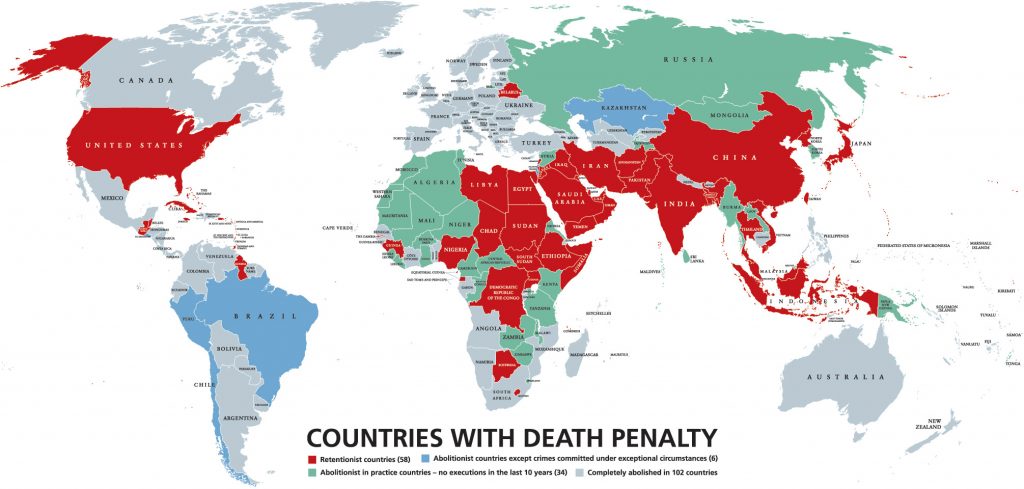
The Supreme Court issued a decision last month that could give greater agency to death penalty defendants who want to take control of their defense strategy. Justice Ruth Bader Ginsburg wrote the opinion for the majority in a 6-3 decision. The case, McCoy v. Louisiana, concerned a man by the name of Robert McCoy whose Sixth Amendment rights were violated during the course of his trial, according to the Supreme Court’s decision. The Sixth Amendment secures a person’s right to counsel in criminal defense cases, but according to Ginsburg’s court order, it also secures a person’s right to steer the proverbial ship of their defense.
The Case
McCoy, who was on trial for the murder of three family members, vehemently denied that he had anything to do with their murders. He thus urged his attorney, Robert English, to argue for his total innocence in the matter. English, who took a different view, tried to persuade his determined client to take another path, but to no avail. Despite McCoy’s pleadings and despite the fact that McCoy had entered a not-guilty plea, English told the jury on several occasions that his client was indeed guilty of the three murders. The defense attorney tried to persuade the jury-members that McCoy suffered from mental debilitation during the time of the alleged killings and therefore could not be convicted of first-degree murder. On at least one occasion, English told the jury his client was “crazy” and “lives in a fantasy world.”
Persistent Protest
English suggested that McCoy should be convicted of the lesser charge: third-degree murder. In taking up this strategy, English hoped to avoid the death penalty, and when the sentencing hearing came, he continued to push the same agenda, despite the persistent protest of his client. At one point, McCoy even stood up and voiced his opposition to English, drawing the ire of the judge who told McCoy to stay quiet and seated. English, dissuaded by his client’s disapproval, attempted to withdraw from the defense but was blocked by the judge.
Ginsburg recounted this pithily in her opinion. “[T]he defendant vociferously insisted that he did not engage in the charged acts and adamantly objected to any admission of guilt,” she wrote, continuing, “Yet the trial court permitted counsel, at the guilt phase of a capital trial, to tell the jury the defendant ‘committed three murders. … [H]e’s guilty.’”
Death Penalty Given
What’s more, English failed to persuade the jury, and in the end, McCoy was sentenced to three death penalties by the Louisiana court. The Supreme Court’s 6-3 decision effectively overturned those death penalties and reaffirmed the Sixth Amendment’s promise: that defendants have the right to direct their counsel in any way they see fit, even if the attorney has every reason to believe their strategy is the best approach. Thus, the court decided, a criminal defense attorney may not unilaterally choose to go against his or her client’s wishes.
The Majority’s Argument
According to Ginsberg’s 13-page order, English violated the Sixth Amendment when he decided to explicitly contradict his client’s express demand to pursue a strategy based on his innocence. A defense attorney may make certain decisions pertaining to “trial management.” For instance, English can choose when to make objections to certain evidence, but he cannot make sweeping decisions that undermine the client’s opinion vis a vis the overall defense strategy. As Ginsburg put it: “Even when a criminal defendant is assisted by counsel, some decisions are reserved for the client.” Thus, English was not within his rights when he conceded his client’s guilt in defiance of McCoy’s opposing demand.
Moreover, this concession of guilt was “structural” – meaning, the value of English’s error could not be overstated, as it cut to the very core of the case. According to Ginsburg, “[T]he effects of the admission would be immeasurable, because a jury would almost certainly be swayed by a lawyer’s concession of his client’s guilt.” Thus, the majority decided that McCoy was owed a new trial and that he did not have to show how English harmed his case.
